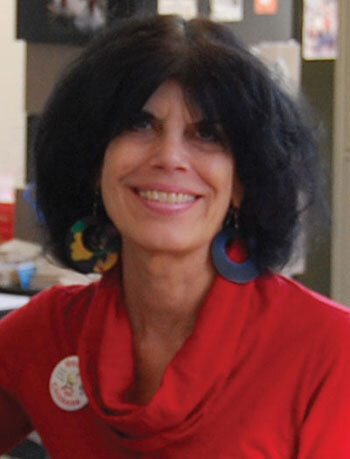Saturday Dec 20, 2014
The emotional lives of animals and children with Dr. Karen Davis

Dr. Karen Davis, Ph.D. founder of United Poultry Concerns, a nonprofit organization that promotes the compassionate and respectful treatment of domestic fowl including a sanctuary for chickens in Virginia joins eHealth Radio and the Animal Health & Health News Channels.
Listen to interview with host Eric Michaels and guest Dr. Karen Davis discuss the following:
- You just were a panelist in New York talking about Where Did Our Compassion Go? Children, Adults and the Loss of the Human-Animal Bond and you wrote a book review on a similar subject – the emotional lives of animals and children. This is a very important subject. Can you tell us more about it?
- What happens between childhood and adulthood that causes most children to outgrow their primal delight in and empathy with animals and become detached, callous and indifferent toward them?
- You regard farmed animal sanctuaries as vitally important for the animals, the caregivers and the public, who otherwise have little or no way of meeting and learning about chickens, turkeys, cows, pigs, goats and other animals. Can you explain your thoughts about that?
- Your review of William Crane’s book, The Emotional Lives of Animals and Children includes the thoughts of educators, psycho-analysts and ethologists. Would you recommend this book for parents?
Duration:19:00
KAREN DAVIS, PhD is the founder and president of United Poultry Concerns, a nonprofit organization dedicated to the compassionate and respectful treatment of domestic fowl. Founded in 1990, United Poultry Concerns addresses the treatment of domestic fowl in food production, science, education, entertainment, and human companionship situations. Karen has a PhD in English from the University of Maryland-College Park where she taught for 12 years in the English Department.
Karen’s articles have appeared in The Faculty Voice (University of Maryland), Journal of English and Germanic Philology, English Language Notes, Teaching English in the Two-Year College, and Between the Species: A Journal of Ethics. Her work, letters-to-the editor and op-eds have been featured in the New York Times, New Yorker, New York Daily News, Wall Street Journal, Washington Post, Washington Times, Washingtonian, Altoona Mirror, Chicago Tribune, Portland Tribune, Chicago Sun-Times, Columbus Dispatch, Cleveland Plain Dealer, Chattanooga Times Free Press, Rochester Democrat and Chronicle, Potomac Gazette, Jerusalem Post, Harper’s Magazine, Atlantic Monthly, Minnesota Monthly, Minneapolis Star Tribune, The Nation, Baltimore Sun, Los Angeles Times, San Francisco Chronicle, San Jose Mercury News, “Dear Abby,” Egg Industry, Feedstuffs, Journal of the American Veterinary Medical Association, Canadian Veterinary Journal, One Green Planet, and many other publications. Karen has appeared on numerous TV and radio shows including The Howard Stern Show, The Daily Show, Fact Finders on WB Channel 11 News @ Ten in New York City, 1010 WINS’ John Montone reports/CBS New York, Fox Television, and This American Life on National Public Radio.
In 2011, Karen published a chapter on her growth as an activist, “From Hunting Grounds to Chicken Rights: My Story in an Eggshell,” in Sister Species: Women, Animals, and Social Justice (University of Illinois Press). Her contribution, “Birds Used in Food Production,” appears in The Global Guide to Animal Protection (University of Illinois Press, 2013). Karen’s essay, “The Mental Life of Chickens as Observed Through Their Social Relationships,” is the opening chapter in Experiencing Animal Minds: An Anthology of Animal-Human Encounters (Columbia University Press, 2012), and her essay, “From Animal Oppression to Animal Liberation: A Historical Reflection,” is the Afterword in Defining Critical Animal Studies: An Intersectional Social Justice Approach to Liberation (Peter Lang, 2014). Karen’s chapter, “Anthropomorphic Visions of Chickens Bred for Human Consumption,” in Critical Animal Studies: Thinking the Unthinkable (Canadian Scholars’ Press, 2014), analyzes the transformation of chickens and turkeys into mutilated forms of existence as an endeavor not only of the poultry industry, but as a “welfare improvement” strategy endorsed by elements of the so-called animal protection movement.
In 2010, Karen and a group of New York City activists formed The Alliance to End Chickens as Kaporos (www.EndChickensAsKaporos.com), a project of United Poultry Concerns comprising people who seek to replace the cruel practice of swinging and slaughtering chickens in Kaporos rituals with money or other non-animal symbols of atonement. On October 9, 2010, Pulitzer Prizewinning photojournalist Carol Guzy published “An ancient tradition draws protests” in the online edition of The Washington Post, prompted by the Alliance’s Rally to End Chickens as Kaporos, on September 12, 2010, in Brooklyn, NY (www.endchickensaskaporos.com/101011wpost.html).
Karen's work is prominently featured in the National Museum of Animals & Society’s online exhibit “Un-Cooped: Deconstructing the Domesticated Chicken.” This unique museum, which opened in May 2013 to correspond with UPC's International Respect for Chickens Day May 4, is a treasure house filled with historical and contemporary documents about chickens. Visit Un-Cooped at www.uncooped.org.
Karen Davis is the author of several books including A Home for Henny (a children’s book published by UPC); Instead of Chicken, Instead of Turkey: A Poultryless ‘Poultry’ Potpourri (a cookbook published by the Book Publishing Co.); Prisoned Chickens, Poisoned Eggs: An Inside Look at the Modern Poultry Industry (Book Publishing Co.); More Than a Meal: The Turkey in History, Myth, Ritual, and Reality (Lantern Books); and The Holocaust and the Henmaid’s Tale: A Case for Comparing Atrocities (Lantern Books). The 2009 Revised Edition of Karen’s landmark book Prisoned Chickens, Poisoned Eggs (first published in 1996) is described by the American Library Association's Choice magazine as "Riveting . . . brilliant . . . noteworthy for its breadth and depth." See Book Reviews at www.upc-online.org/bookreviews.

Web Site: www.upc-online.org
Facebook: facebook.com/UnitedPoultryConcerns
Twitter: @upcnews
Note: The views and opinions expressed on any program are those of the persons appearing on the program and do not necessarily reflect the views and opinions of the eHealth Radio Network.
Version: 20241125
No comments yet. Be the first to say something!